Sierra Tucson offers effective, comprehensive treatment for individuals struggling with addiction and mental health concerns. Learn more about the signs and symptoms of meth addiction.
Understanding Meth Addiction
Learn about meth addiction
Methamphetamine, more commonly referred to simply as meth, is an illicit narcotic substance that is derived from the stimulant substance, amphetamine. As a substance that can be snorted, injected, smoked, or swallowed, meth elicits an almost instantaneous high that brings about profound feelings of euphoria while simultaneously hindering the brain’s ability to experience pain. Additionally, when meth is used, it forces the brain to release excessive amounts of the chemical dopamine, which is responsible for maintaining or controlling an individual’s sense of pleasure. The duration of the high that is produced by methamphetamine can be upwards of 12 hours, making the use of this drug highly appealing to its users. Because of this appeal, meth is known to be highly addictive substance that leaves many individuals incapable of escaping their habit without professional intervention. Fortunately, there are a number of treatment options available that can help individuals who are battling a meth addiction receive the care they need to embark on the path to a sober life.
Statistics
Meth addiction statistics
Studies have shown that an estimated 1.2 million people in the United States have admitted to using methamphetamine, and approximately 600,000 Americans are said to use this dangerous substance on a weekly basis. Further studies have shown that, in the Midwestern part of the United States alone, methamphetamine abuse accounts for nearly 90% of all drug abuse cases for which individuals seek treatment.
Causes and Risk Factors
Causes and risk factors for meth addiction
Professionals in the field of mental health, along with addiction specialists, have concluded that there are a number of contributing factors that come into play when looking into the development of methamphetamine addiction. These factors are detailed briefly in the following:
Genetic: Intensive research has been conducted on the prominent role that genetics plays in the onset of addictions to various substances, including methamphetamine. Drug abuse and addiction has long been known to run in families and evidence provided by the presence of variations in the composition of certain inherited genes demonstrate that such addictions can be passed down from generation to generation. When people have a first-degree biological relative who has a history of chemical dependency, they are increasingly vulnerable to developing an addiction at some point in their lives as well.
Environmental: Certain environmental factors can play a role in rendering some individuals more susceptible to developing an addiction to substances like meth than are other individuals. For example, people who grow up in environments where the use of drugs and/or alcohol is widespread are more likely to begin engaging in the abuse of substances themselves, as opposed to individuals who do not experience similar exposure to substance use. Additionally, people who have been victimized or who have been subjected to various forms of abuse and/or neglect are a heightened risk for beginning to experiment with, and subsequently developing an addiction to various substances, including methamphetamine, as they seek out a way to numb the inner emotional turmoil they feel as a result of their negative experiences.
Risk Factors:
- Family history of chemical dependency concerns
- Personal history of abusing other drugs and/or alcohol
- Preexisting mental health condition
- Family history of mental health conditions
- Exposure to violence and/or crime
- Being the victim of abuse and/or neglect
- Ease of access in obtaining the drug
- Chaotic or stressful home environments
Signs and Symptoms
Signs and symptoms of meth addiction
The signs and symptoms that may present when an individual is abusing methamphetamine will inevitably vary from person to person depending upon a number of different factors. Such factors can include the length of time that one has been using the drug, the frequency of the use, and the amount that is used at any given time. Examples of various symptoms that may indicate that a person is struggling with a meth abuse problem can include:
Behavioral symptoms:
- Erratic and/or belligerent behaviors
- Change in peer group
- No longer participating in activities that were once enjoyed
- Lying and/or stealing
- Talking incessantly or, conversely, not talking at all
- Alternating between random bursts of hyperactivity and bouts of lethargy
- Unprovoked aggressive outbursts
- Social withdrawal or isolation
- Frequent absences from work
- Drop in work performance
- No longer adhering to daily responsibilities
Physical symptoms:
- Oscillating between insomnia and hypersomnia
- Loss of appetite and subsequent significant weight loss
- Significant and noticeable change in overall physical appearance
- Lacking proper hygiene
- Foul body odor
- Decayed teeth
- Acne
- Development of skin sores
- Facial tics
- Increased blood pressure
- Accelerated heart rate
- Increase in body temperature
- Muscle spasms / uncontrollable twitching / tremors
Cognitive symptoms:
- Memory loss
- Excessive confusion
- Hallucinations
- Delusions
- Paranoia
- Psychosis
- Disorientation
- Lacking the ability to reason and use sound judgment
- Loss of inhibition
- Experiencing learning difficulties
Psychosocial symptoms:
- Oscillating episodes of depression and hypomania
- Excessive irritability
- Excessive agitation
- Deterioration of self-esteem / lowered sense of self-worth
- Emotional dysregulation
- Unprovoked and irrational feelings of fear
- Suicidal ideation
- Declined interest in things one was once interested in
Effects
Effects of meth addiction
The prolonged abuse of methamphetamine can take a terrible toll on a person’s life, causing devastation not only on the user’s life, but on the lives of those around them as well. When treatment is not sought to put an end to the harrowing habit, the following types of things are likely to occur:
- Occupational failure / job loss / chronic unemployment
- Financial strife
- Homelessness
- Disturbed relationships
- Marital discord, potentially resulting in divorce
- Familial strife (e.g. losing custody of one’s children)
- Interaction with law enforcement, including possible incarceration
- Diminished sense of self-worth
- Deteriorated physical appearance
- Contraction of viruses, such as HIV/AIDS or hepatitis C
- Irreversible cognitive impairment
- Weakening of, or permanent damage to, one’s immune system
- Overall deterioration of one’s physical and mental health
- Overdose
- Suicidal thoughts and behaviors
Co-Occurring Disorders
Meth addiction and co-occurring disorders
Individuals who are battling an addiction to meth are frequently suffering from another mental health condition simultaneously. Examples of such conditions that are known to co-occur alongside methamphetamine addiction may include:
- Depressive disorders
- Bipolar disorder
- Anxiety disorders
- Attention-deficit/hyperactivity disorder
- Posttraumatic stress disorder
- Borderline personality disorder
- Other substance use disorders
Withdrawal and Overdose
Effects of meth withdrawal and overdose
Effects of meth withdrawal: Whenever someone has abusing meth for any significant length of time, but then suddenly ceases their use, they are likely to experience the uncomfortable symptoms of withdrawal. Not only can these symptoms be painful, but they can also be life-threatening, which is why withdrawal should occur under supervision of medical and/or mental health professionals. Examples of signs and effects that may indicate that a person is experiencing methamphetamine withdrawal can include:
- Increased feelings of depression and anxiety
- Alternating between hot and cold sweats
- Rapid weight gain
- Extreme fatigue
- Overpowering cravings for the drug
- Sudden inability to experience pleasurable sensations
- Paranoia
- Suicidal ideation
- Making attempts at committing suicide
- Experiencing flu-like symptoms
- Psychomotor tics
Effects of meth overdose: Whenever a person is using meth and ingests more of the substance than their body is capable of metabolizing, they are at risk for experiencing an overdose. Due to the tolerance that develops from the chronic abuse of this substance, meth users are frequently increasing the amount that they use at any given time. As the dosage ingested increases, so does a person’s risk for overdosing. As is true for an overdose of any substance, experiencing an overdose on methamphetamine should be considered a medical emergency and treatment should be sought immediately in order to prevent a fatal outcome. Signs and effects that could indicate that someone has overdosed on meth may include:
- Chest pains
- Seizures
- Heart attack
- Kidney failure
- Experiencing significant difficulty breathing
- Lapsing into a coma












